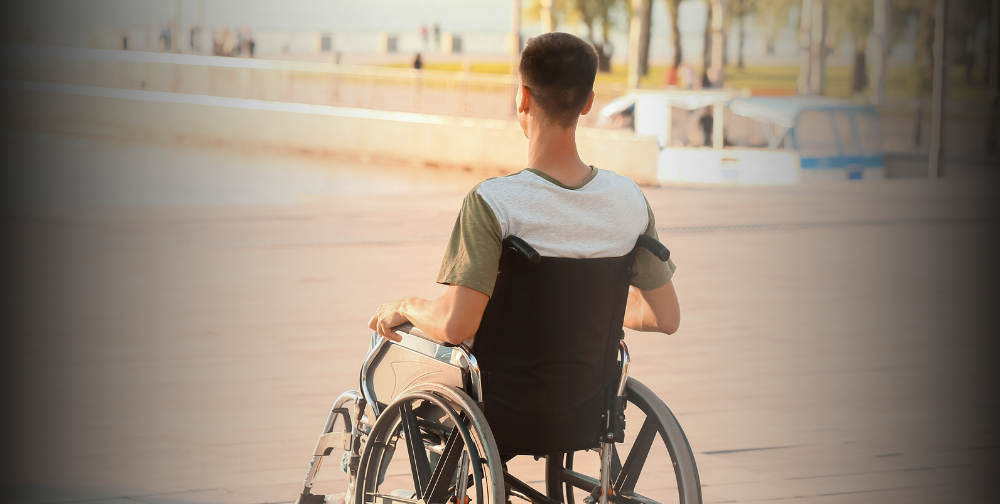The Mental, Emotional, and Social Effects of Spinal Cord Injuries

Spinal cord injuries (SCIs) can have profound impacts beyond the physical challenges they present. The mental, emotional, and social effects are significant and can dramatically alter a person’s life. Understanding these effects is crucial for providing comprehensive care and support to individuals dealing with SCIs. The journey of adjusting to a spinal cord injury is complex and multifaceted, requiring attention to all aspects of an individual’s well-being.
Dealing with the consequences of an SCI involves addressing the mental and emotional health challenges, maintaining social connections, and adapting to new life circumstances. Consulting with an experienced Albuquerque spinal cord injury attorney can also be essential in navigating the legal and financial complexities that often accompany these injuries. This article explores the wide-ranging impacts of SCIs and offers insights into managing these challenges effectively, ensuring a better quality of life for those affected.
Mental Health Challenges
Spinal cord injuries often lead to a range of mental health challenges. The sudden and drastic change in lifestyle can trigger conditions such as depression and anxiety. The loss of independence and mobility can lead to feelings of hopelessness and despair, making it difficult for individuals to see a positive future.
Cognitive impairments can also occur, particularly if the injury affects the brain or upper spinal cord. These impairments can include difficulties with memory, attention, and executive functioning. Access to mental health professionals and cognitive rehabilitation can help manage these issues, providing individuals with strategies to cope and improve their mental health.
Emotional Strain
The emotional strain of living with a spinal cord injury is profound. Individuals often experience grief and loss as they come to terms with their new reality. The emotional adjustment to a life with limited mobility can be overwhelming, leading to emotional outbursts, mood swings, and feelings of frustration.
It is crucial to have support from family, friends, and mental health professionals when navigating emotional challenges. Counseling and therapy can assist individuals in processing their emotions, developing healthy coping mechanisms, and adapting to new circumstances. Emotional support groups can also offer a sense of community and understanding, which is invaluable during recovery.
Social Isolation
Social isolation is a common issue for individuals with spinal cord injuries. Mobility limitations and the need for accessibility can make it challenging to participate in social activities that were once a regular part of life. This isolation can lead to loneliness and a sense of disconnection from friends and family, exacerbating feelings of depression and anxiety.
Encouraging social interaction and finding accessible activities are essential for reducing feelings of isolation. Community centers, support groups, and online forums provide valuable opportunities for social engagement and connection. It is crucial to create an inclusive environment that accommodates mobility needs in order to maintain social connections and foster a sense of belonging.
Maintaining these social connections is essential for the overall well-being of individuals with spinal cord injuries. Regular social interaction can improve mental health, provide emotional support, and enhance the quality of life, helping individuals navigate the challenges of living with an SCI.
Impact on Relationships
A spinal cord injury can significantly impact personal relationships, leading to changes and challenges that affect family dynamics and friendships. Understanding these impacts and addressing them proactively can help maintain and strengthen relationships. Here are key points to consider:
- Changing family dynamics: Loved ones often take on caregiving roles, which can lead to stress and tension within the family.
- Strained friendships: Friends may struggle to understand the new limitations and changes, potentially causing distance or strain in the relationship.
- Open communication: Maintaining honest and open communication about the injury and its effects is crucial for fostering understanding and support.
- Education: Friends and family should learn about the challenges faced by the individual with the injury and how they can provide effective support.
- Counseling: Professional counseling for both the injured person and their loved ones can help manage relationship dynamics and facilitate emotional adjustment.
- Support groups: Participating in support groups can offer both the injured person and their family members a sense of community and shared experience.
- Empathy and patience: Cultivating empathy and patience within relationships is essential for navigating the changes brought about by a spinal cord injury.
Employment and Financial Stress
Employment and financial stress are significant concerns for individuals with spinal cord injuries. Many may find it difficult to return to their previous job roles, leading to a loss of income and financial instability. The costs of medical care, rehabilitation, and adaptive equipment add to this burden.
Vocational rehabilitation programs can assist individuals in finding suitable employment opportunities that accommodate their physical limitations. Financial planning and legal assistance can also help manage expenses and secure compensation for medical costs and lost wages. Consulting with an experienced attorney can provide valuable guidance in navigating these financial challenges.
Long-Term Rehabilitation and Adaptation
Long-term rehabilitation is essential for adjusting to life with a spinal cord injury. Physical therapy, occupational therapy, and other rehabilitation services help individuals regain as much independence as possible and improve their quality of life. These therapies focus on enhancing mobility, strength, and the ability to perform daily tasks.
Adapting to life with a spinal cord injury (SCI) also involves making necessary modifications to the home environment. This may include installing ramps, modifying bathrooms, and using adaptive devices to improve accessibility and safety. These changes enable individuals to navigate their living spaces comfortably and independently.
Continual support from healthcare professionals, as well as family and community resources, is crucial for successful adaptation. Consistent medical care, emotional support, and access to community programs are essential for long-term well-being and helping individuals maintain a high quality of life despite the challenges of living with a spinal cord injury.
Advocacy and Support Networks
Advocacy and support networks play a vital role in the lives of individuals with spinal cord injuries. These organizations provide essential resources, information, and support services to help individuals and their families navigate the complexities of living with an SCI. They also advocate for policies and legislation that improve accessibility and quality of life.
Connecting with advocacy groups can offer a sense of community and empowerment. These organizations often provide peer support, educational programs, and opportunities for involvement in advocacy efforts. Engaging with a support network can help individuals stay informed, connected, and actively involved in their care and advocacy.





